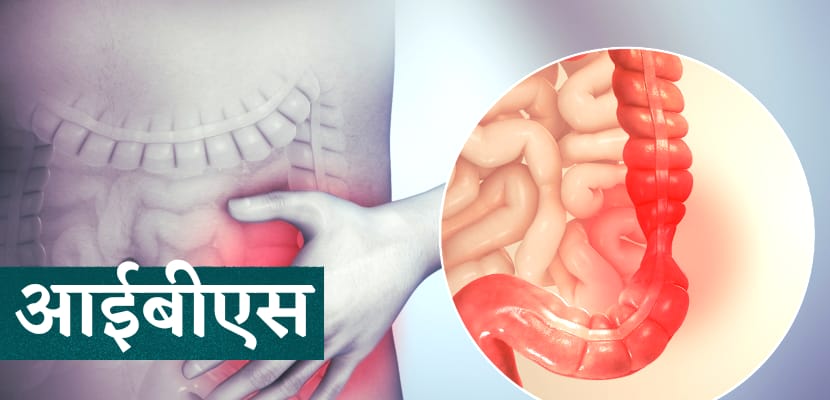Irritable Bowel Syndrome (IBS) is a common gastrointestinal disorder that affects millions of people worldwide. Characterized by symptoms like abdominal pain, bloating, and irregular bowel habits, IBS can significantly disrupt one’s quality of life. While there are various treatment options available, many individuals are turning to Ayurvedic medicine as a holistic and natural solution to manage their IBS symptoms. In this comprehensive guide, we’ll delve into the world of Ayurveda and explore how Ayurvedic medicine can help alleviate the discomfort of IBS.
Understanding Irritable Bowel Syndrome (IBS)
What is IBS?
Irritable Bowel Syndrome, commonly referred to as IBS, is a chronic gastrointestinal disorder that affects the large intestine (colon). It is characterized by a group of symptoms that may vary from person to person but typically include:
- Abdominal pain or discomfort
- Bloating
- Changes in bowel habits (diarrhea, constipation, or a combination of both)
- Excessive gas
- Mucus in the stool
The exact cause of IBS is still not fully understood, but factors such as diet, stress, and altered gut motility are believed to contribute to its development.
Conventional Treatments vs. Ayurvedic Approach
Traditional medical treatments for IBS often include medications to manage symptoms and lifestyle modifications. However, many individuals are seeking alternative and complementary therapies to address the root causes of their condition.
Ayurveda, the ancient Indian system of medicine, offers a holistic approach to healing that focuses on balancing the body, mind, and spirit. Ayurvedic treatments for IBS aim to restore harmony and equilibrium within the body, thus addressing the underlying causes of the disorder rather than just its symptoms.
Ayurvedic Principles for Treating IBS
Ayurveda considers IBS as a manifestation of an imbalance in the “Vata” dosha, one of the three fundamental energies that govern the body. To effectively manage IBS, Ayurvedic practitioners follow these key principles:
1. Dietary Modifications
Balancing Vata: A key aspect of Ayurvedic treatment for IBS is adopting a diet that pacifies the aggravated Vata dosha. This involves consuming warm, cooked, and nourishing foods while avoiding cold, raw, and processed items. Foods like ghee, rice, and cooked vegetables are recommended.
2. Herbal Remedies
Ayurvedic medicine often relies on the use of herbs and botanicals to soothe the gastrointestinal tract and alleviate IBS symptoms. Some commonly used herbs for IBS include:
-
Aloe Vera: Known for its anti-inflammatory properties, aloe vera can help soothe the gut lining and reduce inflammation.
-
Peppermint: Peppermint oil can relax the muscles of the gastrointestinal tract, reducing spasms and discomfort.
-
Fennel: Fennel seeds aid digestion and help alleviate bloating and gas.
-
Ginger: Ginger is renowned for its anti-nausea and anti-inflammatory properties, making it an excellent choice for IBS relief.
3. Lifestyle Practices
Ayurveda emphasizes the importance of maintaining a healthy daily routine. This includes getting sufficient sleep, managing stress through practices like yoga and meditation, and staying physically active. These lifestyle modifications can play a significant role in alleviating IBS symptoms.
Benefits of Ayurvedic Medicine for IBS
The holistic approach of Ayurvedic medicine offers several benefits for individuals suffering from IBS:
-
Natural Healing: Ayurvedic remedies are derived from nature, making them gentle on the body and without the side effects associated with some conventional medications.
-
Individualized Treatment: Ayurvedic practitioners tailor treatment plans to each individual’s unique constitution and imbalances, ensuring a personalized approach.
-
Long-Term Relief: By addressing the root causes of IBS, Ayurvedic medicine aims for long-term relief rather than merely suppressing symptoms.
-
Improved Digestion: Ayurvedic dietary recommendations and herbal remedies promote better digestion and reduce discomfort.
Conclusion
Irritable Bowel Syndrome can be a challenging condition to manage, but Ayurvedic medicine provides a holistic and natural approach that focuses on restoring balance within the body. By addressing the root causes of IBS, Ayurveda offers individuals the hope of long-term relief and a better quality of life. If you’re seeking an alternative to conventional treatments, Ayurvedic medicine may be the solution you’ve been looking for.
Remember, it’s essential to consult with a qualified Ayurvedic practitioner before starting any treatment regimen, as they can provide personalized guidance based on your unique constitution and symptoms. With the right guidance and commitment to an Ayurvedic approach, you can find relief from the discomfort of IBS and enjoy a healthier, more balanced life.







